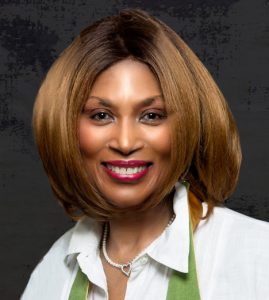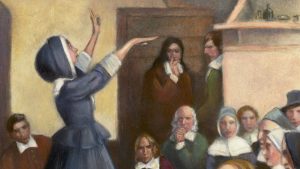On registration day in the fall of 2005 at James Walker Hood Theological Seminary, I looked around and it appeared the females outnumbered male seminarians three to one. I felt extremely proud to be among so many females.
Why? Because I thought, “With these numbers, some patriarchal barriers to becoming senior pastors will have a forceful breach.” I remember many of the males speaking about “their” churches, but they were not ordained. How did they become pastors without divinity degrees and ordination?

Sheila D. Sholes-Ross
In my senior year after preaching for weekly chapel, one male seminarian stated, “Woman, you can preach, although it will probably be hard for you to obtain a church, especially a Baptist church. However, I will call on you to preach at my church any day.”
He was in his second year of seminary and was a pastor. He never called me. But here I am today, into my ninth year as senior pastor of First Baptist Church in Pittsfield, Mass.
“Since my fellow seminarian never invited me to preach at ‘his church,’ while in my second year of seminary I envisioned an advocacy concept focusing on women in ministry.”
Since my fellow seminarian never invited me to preach at “his church,” while in my second year of seminary I envisioned an advocacy concept focusing on women in ministry. I discussed it with professors as a possible project for my master of divinity degree. They informed me the project was more suited to a doctoral degree. Still, I forged ahead developing thoughts.
Upon seminary graduation, I joined the Alliance of Baptists and became a board member. At an Alliance gathering, I presented the proposal, and the foundation for Equity for Women in the Church Inc. was birthed.
Now a national ecumenical nonprofit, Equity for Women in the Church is a movement to facilitate equal representation of clergywomen as pastors of multicultural churches in order to transform church and society. I co-chair with Jann Aldredge-Clanton, author and feminist theologian. On the Equity board of directors there are male allies. They are retired pastors, seminary professors, lay ministers and theologians. We’re grateful for their commitment to Equity. However, on the board, females still outnumber the males three to one. On the board, male members are reviewing strategies to increase male advocacy on behalf of female clergy.
I was invited to participate in an extraordinary venture. I am now understanding why I felt some sadness when I completed the chapter “Empowered by My Promised Inheritance” for the book When God Whispered My Name. I was sad because I thought, “Here it is again, women at the forefront of telling stories on behalf of women in ministry.”
“We need male allies to do more advocacy, maybe write a book about women in ministry.”
Yes, it was wonderful, but we need male allies to do more advocacy, maybe write a book about women in ministry. The book could discuss struggles as told to male allies by women. It must include any ostracizing endured as males and how they dealt with it. When God Whispered My Name, co-edited by Kathy Manis Findley and Kay Wilson Shurden and published by Smyth and Helwys, focuses on the ministry journeys as told by Baptists women.
I was proud and grateful to have completed the chapter in the midst of busy days as a senior pastor, but afterward, I had hope and despair moments. Yes, I was humbled to be a part of this book authored by women who were not afraid to share how they moved forward in their calling in spite of struggles and archaic treatment. My rejoicing over completing the chapter was limited because I pondered, “When will there be more advocacy by our male counterparts?”
Maybe with a book, authored by a variety of renowned male clergy and lay supporters, there will be additional voices beyond the female. I envisioned it becoming a bestseller with men traveling around the country and even going abroad to do a promotional tour. Wouldn’t that be wonderful? There are male allies advocating on behalf of women in ministry, but more are needed.
There are males who have documented their support for women in ministry. Baptist News Global Executive Director Mark Wingfield (male ally), suggested reaching out to males who are “on the fence” about advocacy on behalf of clergywomen and engage these males in a discussion. Help them to understand the necessity of confronting 21st century patriarchal mindsets facing clergywomen. Review the pros and cons of it all. Encourage them that “men of God,” who truly believe in God’s justice, must become more vocal in order to offset patriarchal perspectives.
 I am rereading the book American Jezebel by Eve LaPlante, a direct descendent of Anne Hutchinson on whom the book is focused. She discusses how Hutchinson defied the Puritans as a spiritualist and religious reformer. I first read this book while living in the South and in seminary. Now as a Massachusetts resident and a pastor, I feel more anger and outrage as I reread about those men who persecuted Hutchinson.
I am rereading the book American Jezebel by Eve LaPlante, a direct descendent of Anne Hutchinson on whom the book is focused. She discusses how Hutchinson defied the Puritans as a spiritualist and religious reformer. I first read this book while living in the South and in seminary. Now as a Massachusetts resident and a pastor, I feel more anger and outrage as I reread about those men who persecuted Hutchinson.
One passage states: “In colonial Boston in the summer of 1643, the leading men rejoiced at the news of Anne Hutchinson’s death. Her destruction seemed the act of God, ‘Let her damned heresies, and the just vengeance of God, by which she perished, terrify all her seduced followers from having any more to do with her leaven.’”
This came from a Concord pastor, leading the persecution of this “woman advocate.”
Another Massachusetts leader by the name of John Winthrop said of Hutchinson’s demise, “Thus it had to please the Lord to have compassions of his churches here, and to discover this great imposter, an instrument of Satan.” Winthrop went on to say, “This American Jezebel kept her strength and reputation, even among the people of God.”
Those males demonized Hutchinson. We know them as the males of the 1600s who aligned themselves with a cascade of Winthrop patriarchal thinkers. With the advocacy “silence” of 21st century males, whether clergy or lay, there remains an unspoken labeling of clergywomen as American Jezebels. The labeling continues because of a deafening male silence.
If you are male and have not yet offered your “recognizable vocal support” of women in ministry, step up. If you are female, pass this article on to a male, even if there is some discomfort, and ask the following question: “Will you become an ally on behalf of women in ministry?”
Sheila D. Sholes-Ross serves as pastor of First Baptist Church of Pittsfield, Mass.


